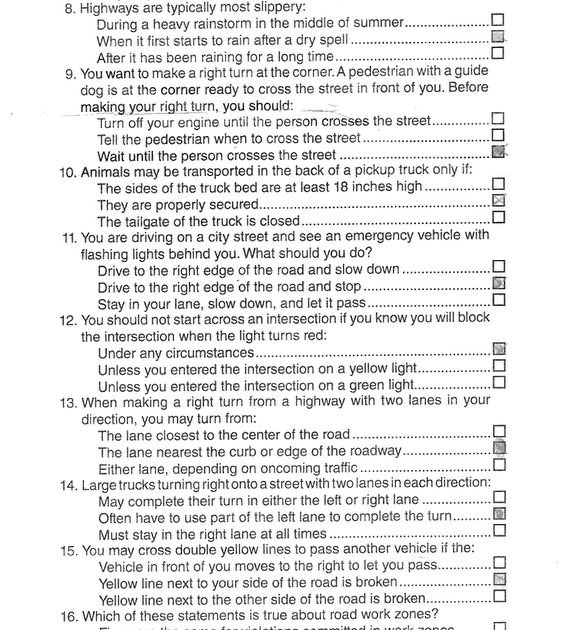California Driving Requirements for Seniors: Stay Safe and Independent on the Road

Maintaining your driving independence as a senior in California is a valuable asset. However, ensuring road safety for yourself and others requires understanding the specific requirements and best practices for older drivers. This guide offers a comprehensive overview of California's driving regulations for seniors, equipping you with the knowledge to navigate the system and continue enjoying the freedom of the open road.
Getting older doesn't necessarily mean giving up your car keys. California recognizes the importance of driving freedom for its senior population. The state's Department of Motor Vehicles (DMV) has implemented specific procedures and regulations designed to assess and maintain the driving capabilities of older adults, contributing to overall road safety. This proactive approach aims to identify potential risks and provide resources for seniors to improve or maintain their driving skills.
The driving evaluation process for senior drivers in California emerged from the growing recognition of age-related changes that can affect driving abilities. As our bodies age, our reflexes might slow down, vision can deteriorate, and certain medical conditions can impact our driving performance. These changes prompted the DMV to introduce stricter guidelines for senior drivers to identify and address potential safety concerns. Understanding the history behind these regulations clarifies their purpose: they're not designed to restrict seniors, but rather to enhance safety for everyone.
These regulations are crucial because they protect not only senior drivers but also the wider community. By identifying and mitigating potential driving risks, California's DMV contributes to safer roads for all. For seniors themselves, these rules empower them to maintain their driving privileges by providing a pathway to demonstrate their competency behind the wheel or access resources to improve their skills. The focus is on maintaining safe driving practices and identifying when adjustments or alternative transportation methods might be necessary.
Navigating the California DMV's requirements for senior drivers involves understanding a few key procedures. License renewals for drivers aged 70 and older must be done in person at a DMV office, unlike younger drivers who can often renew online. This in-person renewal process usually involves a vision test and a knowledge test. Additionally, if concerns about a senior's driving ability are raised, the DMV might request a behind-the-wheel driving test. This process ensures that seniors maintain the necessary skills to drive safely.
One benefit of these regulations is the early identification of potential driving impairments. Through the required tests, seniors can discover any changes in their vision or cognitive abilities that might be affecting their driving. This allows for timely intervention, whether it's getting a new prescription for eyeglasses or addressing underlying health conditions. Another advantage is the access to resources for senior drivers. The DMV can provide information about driving safety courses, adaptive driving equipment, and alternative transportation options. Finally, these procedures offer peace of mind to both seniors and their families, knowing that their driving abilities are being regularly assessed and supported.
To prepare for a senior driving test, practice driving in various conditions and review the California Driver Handbook. Familiarize yourself with traffic laws and safe driving practices. If you experience any changes in your physical or mental health, consult your doctor and consider adaptive driving devices or alternative transportation. These steps enhance your safety and demonstrate your commitment to responsible driving.
Advantages and Disadvantages of Senior Driving Regulations
While these regulations promote safety, some potential downsides include increased administrative burdens for seniors and the potential for anxiety surrounding testing.
Best Practices for Senior Drivers in California:
1. Regularly schedule vision and hearing checks.
2. Stay informed about changes in traffic laws.
3. Consider attending a mature driver improvement course.
4. Discuss any health concerns affecting your driving with your doctor.
5. Plan routes in advance and avoid driving during rush hour or in unfamiliar areas.
Frequently Asked Questions about Senior Driving Tests in California:
1. How often do seniors need to renew their license? Answer: In person, every five years after age 70.
2. What happens if I fail the vision test? Answer: You may be restricted to driving with corrective lenses or during daylight hours.
3. Can someone else report concerns about my driving? Answer: Yes, law enforcement or family members can report concerns to the DMV.
4. What is involved in the behind-the-wheel driving test? Answer: The test assesses your ability to safely operate a vehicle, including parking, turning, and merging.
5. Are there any age restrictions on driving in California? Answer: No, but drivers of all ages must meet the DMV's requirements.
6. What resources are available for seniors who struggle with driving? Answer: The DMV and various organizations offer resources such as driving safety courses and information about alternative transportation.
7. How can I prepare for my senior driving test? Answer: Practice driving, review the Driver Handbook, and address any health concerns that might affect your driving.
8. Can I contest the results of a driving test? Answer: Yes, you can request a re-examination under certain circumstances.
Tips and Tricks for Senior Driving Tests in California
Get plenty of rest before your test. Arrive early to familiarize yourself with the testing location. Wear comfortable clothing and shoes. Listen carefully to the examiner's instructions. Stay calm and focused throughout the test.
Maintaining your driving independence as you age requires proactive steps to ensure your safety and the safety of others. California's senior driving regulations, while sometimes perceived as a hurdle, offer a valuable framework for safe driving practices and continued mobility. By understanding and adhering to these regulations, seniors can preserve their driving privileges, maintain their independence, and contribute to safer roads for all. Take the time to familiarize yourself with the requirements, assess your own driving abilities honestly, and utilize the available resources to enhance your skills. Your continued enjoyment of the open road depends on it.
Usf spring semester launch
Unlock serenity with the perfect baby blue a sherwin williams guide
The power of anti drug speeches a comprehensive guide






